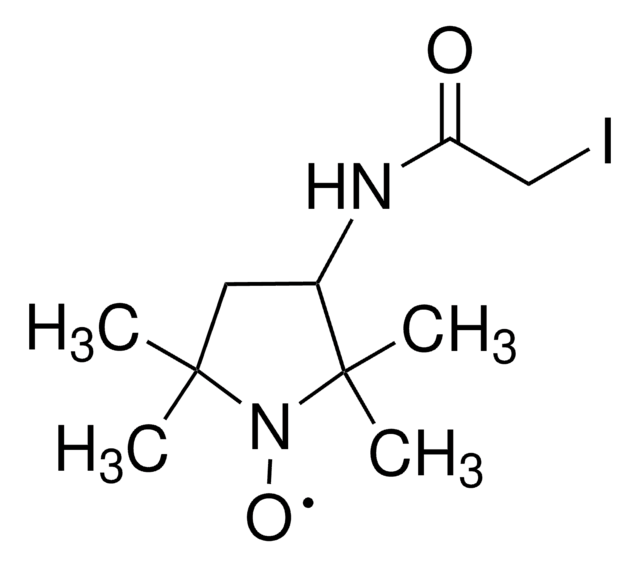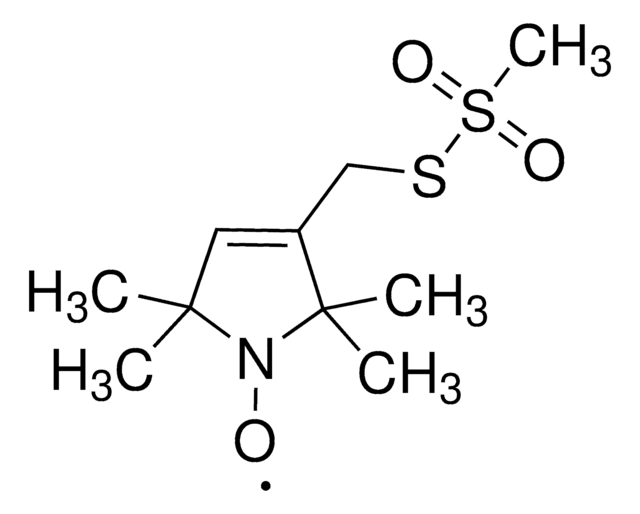253375
3-Maleimido-PROXYL
free radical
Synonym(s):
3-Maleimido-2,2,5,5-tetramethyl-1-pyrrolidinyloxy, free radical
About This Item
Recommended Products
Quality Level
mp
111-113 °C (lit.)
functional group
imide
maleimide
storage temp.
2-8°C
SMILES string
CC1(C)CC(N2C(=O)C=CC2=O)C(C)(C)N1[O]
InChI
1S/C12H17N2O3/c1-11(2)7-8(12(3,4)14(11)17)13-9(15)5-6-10(13)16/h5-6,8H,7H2,1-4H3
InChI key
HGNHBHXFYUYUIA-UHFFFAOYSA-N
Application
Signal Word
Warning
Hazard Statements
Precautionary Statements
Hazard Classifications
Eye Irrit. 2 - Skin Irrit. 2 - STOT SE 3
Target Organs
Respiratory system
Storage Class Code
11 - Combustible Solids
WGK
WGK 3
Flash Point(F)
Not applicable
Flash Point(C)
Not applicable
Personal Protective Equipment
Choose from one of the most recent versions:
Certificates of Analysis (COA)
Don't see the Right Version?
If you require a particular version, you can look up a specific certificate by the Lot or Batch number.
Already Own This Product?
Find documentation for the products that you have recently purchased in the Document Library.
Our team of scientists has experience in all areas of research including Life Science, Material Science, Chemical Synthesis, Chromatography, Analytical and many others.
Contact Technical Service









